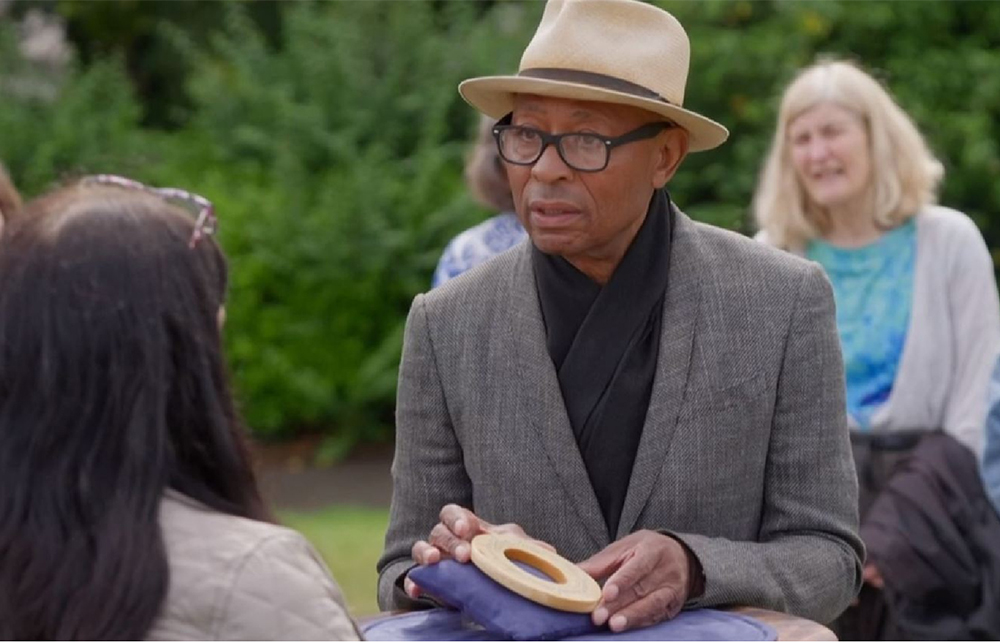It was bound to happen sooner or later: a guest on the BBC’s Antiques Roadshow presented an artefact which derived from the slave trade – an ivory bangle. One of the programme’s experts, Ronnie Archer-Morgan, himself a descendant of slaves, said that it was a striking historical artefact but not one that he was willing to value. ‘I do not want to put a price on something that signifies such an awful business,’ he said.
It’s easy to understand how he feels. The idea of people profiting from the artefacts left over from slavery is distasteful. Yet, as Archer-Morgan said, it is not that the bangle has no value: it has great educational value. It should be bought by a museum and displayed in order to demonstrate the complex nature of slavery and as a corrective to the narrative that slavery was purely a crime committed by Europeans against Africans.
Britain played a bigger role than perhaps any other country in the eradication of slavery
The bangle was, it seems, once in the possession of a Nigerian slaver who was trading in other Africans. It’s a reminder that slavery was rife in Africa long before colonial government. It could also remind us that, though slavery was a global institution, the country that led the world in the rebellion against this barbarism – and played a bigger role than perhaps anyone else in its eradication – was the United Kingdom.
Britain did not invent slavery. Slaves were kept in Egypt since at least the Old Kingdom period and in China from at least the 7th century AD, followed by Japan and Korea. It was part of the Islamic world from its beginnings in the 7th century. Native tribes in North America practised slavery, as did the Aztecs and Incas farther south. African traders supplied slaves to the Roman empire and to the Arab world. Scottish clan chiefs sold their men to traders.
Barbary pirates from north Africa practised the trade too, seizing around a million white Europeans – including some from Cornish villages – between the 16th and 18th centuries. It was in fear of such pirates that the song ‘Rule Britannia’ was written: hence the line that ‘Britons never ever ever shall be slaves’. Even slaves who escaped their masters in the Caribbean went on to take their own slaves. The most concerted campaign against all this was started by Christian groups in London in the 1770s who eventually recruited William Wilberforce to their campaign, and parliament went on to outlaw the slave trade in 1807. British sea power was then deployed to stamp it out.
The largely successful British effort to eradicate the transatlantic slave trade did not grow out of any kind of self-interest. It was driven by moral imperative and at considerable cost to Britain and the Empire. At its peak, Britain’s battle against the slave trade involved 36 naval ships and cost some 2,000 British lives. In 1845, the Aberdeen Act expanded the Navy’s mission to intercept Brazilian ships suspected of carrying slaves.
Much is made about how Britain profited from the slave trade, but we tend not to hear about the extraordinary cost of fighting it. In a 1999 paper US historians Chaim Kaufmann and Robert Pape estimated that, taking into account the loss of business and trade, suppression of the slave trade cost Britain 1.8 per cent of GDP between 1808 and 1867. It was, they said, the most expensive piece of moral action in modern history. The cost of fighting the slave trade cancelled out much, if not all of Britain’s profits from it over the previous century.
There are those who continue to demand reparations for slavery from the UK government and other western powers, yet they rarely, if ever, acknowledge Britain’s role in all but eradicating the evil of the transatlantic slave trade, a cause on which we spent the equivalent of £1.5 billion a year for half a century. Britain’s role in hastening slavery’s extinction is a remarkable achievement. It’s astonishing that we have forgotten it almost entirely in the 21st century.
It would be difficult to find anyone in the world whose ancestral tree does not somewhere extend back to a slave-trader. Huge numbers of us, too, will have been partly descended from slaves. Britain should not minimise or deny the extent to which it traded slaves to the colonies in the early days of Empire. But it is also important to remember the thousands who served and died with the West Africa Squadron while seizing 1,600 slave ships and freeing some 150,000 Africans.
We must examine and remember everything about the history of the slave trade, including the forces – moral and military – that eventually brought it to an end. It’s profoundly worrying that slavery evolved to be a near-universal phenomenon among human societies and inspiring that it came to be all but eradicated within a single human lifespan.







Comments